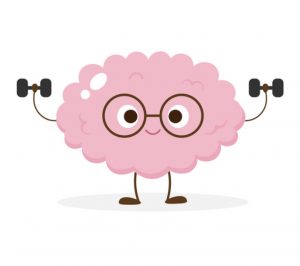 Q. The pandemic has been stressful for us all. My husband and I are staying in most of the time and having groceries and other items delivered to our home. We used to stay active and interact with people all the time at gatherings and at the local senior center. My thirty-year-old daughter once even commented that we have a better social life than her!
Q. The pandemic has been stressful for us all. My husband and I are staying in most of the time and having groceries and other items delivered to our home. We used to stay active and interact with people all the time at gatherings and at the local senior center. My thirty-year-old daughter once even commented that we have a better social life than her!
Since the pandemic started, I miss the engaging conversations I used to have with others at the card games they used to hold at the senior center and the lively interaction at the book clubs. Lately I feel like I am not as sharp as I used to be, and that my brain cells are dying (or simply collecting dust) from being underused. It’s a terrible feeling when I used to have a great memory and excellent recall. Do you have any advice on ways I can keep my neurons fired up and my brain sharp? I don’t want to be one of those people who doesn’t use it, and then they lose it. Thanks for your help!
A. To say that the pandemic has been challenging for us all would be a huge understatement. Staying active and socially engaged has certainly been challenging when it is advised to social distance and many activities just aren’t occurring as they had in the past. However, according to CNN’s Chief Medical Correspondent Dr. Sanjay Gupta, it’s not only important to find a way to stay active, but as you mentioned, to put more focus on the control center of the body: our brain.
Dr. Gupta, who also serves as the associate chief of neurosurgery at Atlanta’s Grady Memorial Hospital has guided Americans through the spikes and surges of COVID-19 on television. As he was doing so, he wrote and published a book, “Keep Sharp: Build a Better Brain at Any Age,” which explains why it’s important to keep your brain sharp and how best to do so.
Why is Brain Health So Important?
In his book, Dr. Gupta explains why brain health is so important. He explains how everything is derived from the brain and how you’re much more likely to improve all other aspects of your health if you start with your brain health. According to Dr. Gupta, “(w)ith brain health comes better judgment. You’ll make better decisions about the other things in your life that affect your health, such as how you nourish your body.”
Dr. Gupta questions the “idea that we think it’s preordained that we’re going to lose cognitive function.” In his opinion, your ability to process, understand, and apply knowledge “can actually get sharper and better as you get older. It is sort of the use it or lose it phenomenon when it comes to the brain.”
Dr. Gupta believes that there are certainly some things you can do to keep your brain healthy and sharp during these challenging times, and possibly stave off loss of memory and cognitive function. Here are some suggestions from his book:
For more details, listen to a recent interview with Dr. Gupta here. For additional articles from the Farr Law Firm about brain health, please click here.
Plan in Advance for Peace of Mind
It is important to do what you can to keep your brain sharp during the pandemic and always. Hopefully some of Dr. Gupta’s suggestions prove to be helpful. It is also important to plan in advance for much needed peace of mind! If you have not done Long-Term Care Planning, Estate Planning, or Incapacity Planning (or had your documents reviewed in the past several years), or if you have a loved one who is nearing the need for long-term care or already receiving long-term care, call us to make an appointment for a consultation:
Fairfax Elder Law: 703-691-1888
Fredericksburg Elder Law: 540-479-1435
Rockville Elder Law: 301-519-8041
DC Elder Law: 202-587-2797












